Buyer’s guide
Rimontgó recommend specialist advice, not only in legal and juridical aspects, but also fiscal and other areas related to the real estate sector. To that effect, our clients may get in contact with us if they want to ask for our database of professionals who can offer them personal care.
This buying guide will help you finding tips and advice on buying any kind of properties (villa, house, apartments, flats, estates). Aspects such as taxation related to the seller’s country of residence and other advice are discussed, courtesy of Rimontgó, Spain’s leading real estate agency.
By working with Rimontgó, our clients receive advice on the most convenient way to approach the urbanistic, economic and legal aspects related to the purchase of their home.
Rimontgó carries out a rigorous process of analysis and meticulous selection of the properties it decides to present to its clients.
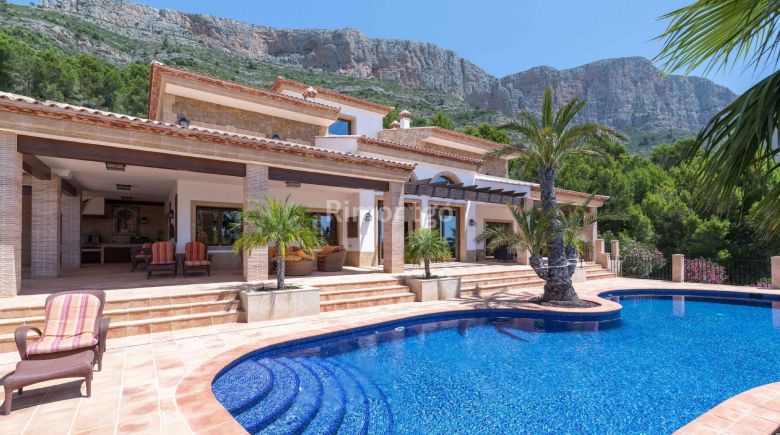
Questions & Answers
Pre-purchase advice
Any property for sale should comply with a series of requirements (legal, physical, urban and economic) that guarantee a risk-free transfer for the person who contributes his/her money to buy a property.
Rimontgó does not accept for sale – and, of course, does not offer – any property that has not passed an exhaustive examination and it is verified that the property complies, or can comply, with the minimum requirements that guarantee an informed and smooth transfer, without surprises.
Hardly any country, such as Spain, is capable of offering the legal security guaranteed by the Public Faith Principle through the Property Registries. The Notary Publics in Spain and the Ambassadors and Consuls General abroad have the necessary training, qualification and experience to offer guarantees to any buyer or seller who, acting naturally within the law, requests their services.
Rimontgó has an internal procedure for the systematic compilation of information for the study of the legal, town planning, tax and property aspects that may affect the property. The fulfilment of this rigorous control is essential in order to accept – and offer – any property for sale. Some owners are surprised when we delay the publication of their property until all the verification has been done. Experience over the years has shown us that this is the only way that, in the end, offers the desired results for all parties involved.
The rigour of our work not only guarantees reliability for the buyer, but also for the sellers, as we often anticipate and solve problems that they themselves were unaware of.

The real estate market changes between cities within the same country, between neighbourhoods and districts within the same city, and also between the same streets that make up those neighbourhoods.
The Estate Agents who work at Rimontgó have been trained internally and are qualified to advise on all aspects related to the properties in our portfolio, including the conditions and circumstances of the local market. Their affiliation to the Official Association of Real Estate Agents is a guarantee of training (COAPI), ethics and access to market information through the exclusive technological tools of the Spanish Association of Property and Mercantile Registrars. This exclusive access to real estate market data provides a wide and detailed window of information for its clients.
This assistance complements the experience and knowledge of the local market and allows clients to evaluate different options within the same area.
The surroundings of the property you would like to buy are a determining factor and a reflection of the lifestyle you can enjoy once you have made your purchase. A good real estate agent, with knowledge of the local environment, in addition to advising on the property, will offer valuable information about the neighbourhood: local shops, sports centres, shopping centres, schools, cultural and leisure activities, etc.: very useful information to ensure that the purchase fits the lifestyle desired by the future owner’s family.
The main cost related to the purchase of a property is, logically, its purchase price; but there are more expenses: depending on the case, the Value Added Tax (VAT) or the Transfer Tax (ITP); the expenses related to the signing of the Public Deed of Sale before a Notary Public; the costs of registration in the Property Registry; the fees of the Real Estate Agent and, where appropriate, other expenses such as administrative management. An indicative figure can vary between 7% and 12% of the purchase price, depending on the type of tax and depending on the Spanish Autonomous Community where the property is located.
Rimontgó provides a detailed list of all these expenses related to the purchase of the chosen property.
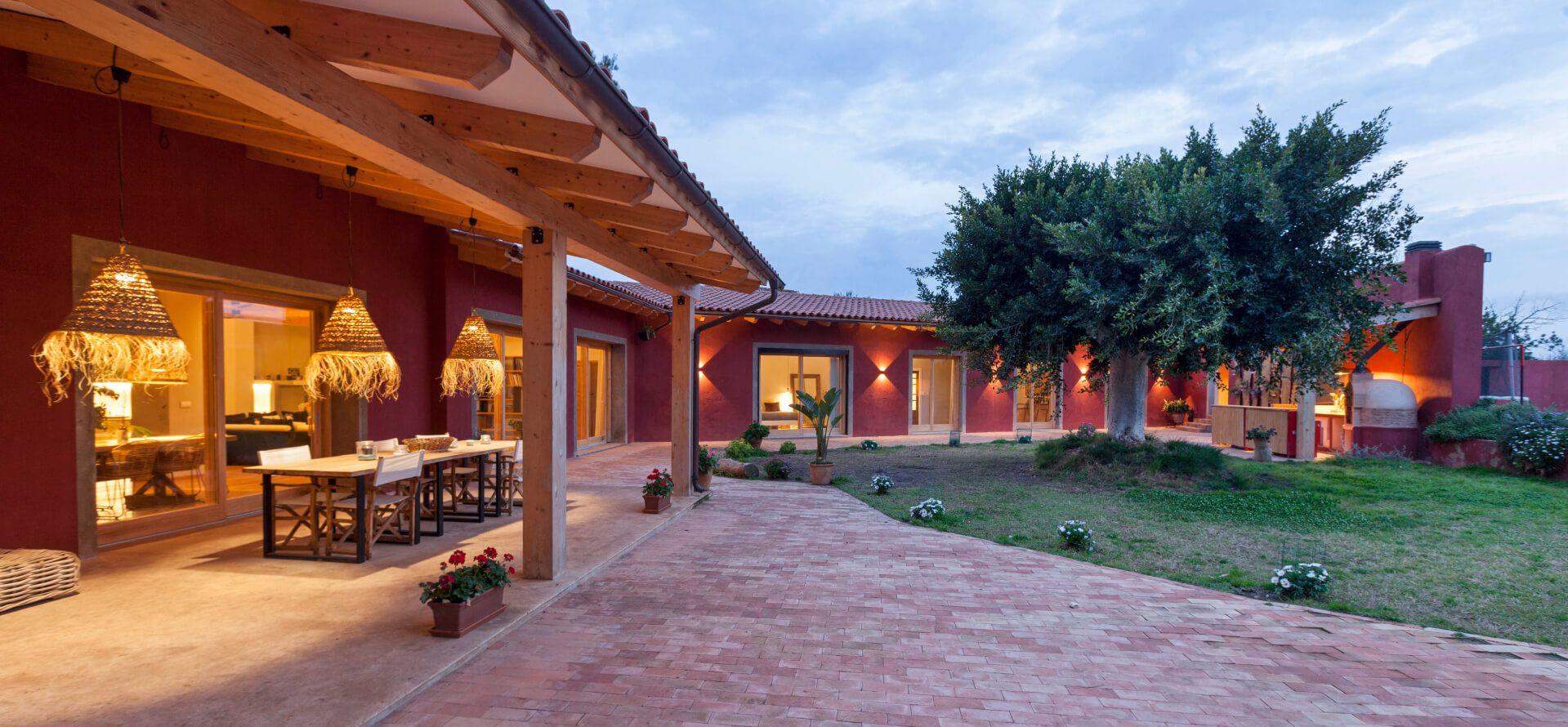
Primarily, the buyer has to ensure that they are able to comply with the controls imposed by the Anti-Money Laundering Compliance .
Rimontgó will ask the potential buyer to provide certain documentation before beginning the process of purchasing any property.
This check is done by Rimontgó with all buyers, whether or not they are Spanish and whether or not they are tax resident in Spain.
There are other “secondary” requirements, such as obtaining, where applicable, the Foreigners Tax Identification Number; the holding of a bank account in Spain, amongst others.
When purchasing
In order to build a new house, it is necessary to have free land or to buy an old house in order to renovate or redevelop it.
Free land is rarely found in city centres, being more abundant in the outskirts of cities. The advantages and disadvantages of each location are easily identifiable.
Jávea has a couple of dozen residential areas, more or less distinct from each other.
List of areas:
- Jávea, historic centre.
- Aduanas del Mar, Jávea Port.
- Playa de El Arenal. Parador de Jávea.
- Montgó area: Rimontgó, Castellans, Toscamar, …
- Les Valls
- Carrasquetes, La Seniola,
- Puchol, Puigmolins,
- Mezquida
- La Corona, Cuesta San Antonio
- El Plá
- Montañar Bajo
- Montañar Alto
- La Caleta
- Adsubia, Tosalet, Cap Martí
- Portichol
- Cap Prim, Cap Negre, Cap de La Nau
- Balcón al Mar, Costa Nova, Granadella
- Lluca, Cansalaes, Tarraula
The answer to the question “What are the advantages of living in one area of Jávea or another?” requires answering other questions that Rimontgó’s agents ask all their clients.:
- What will you use the property for?
- Do you and your family plan to live there all-year-round, or will you be there only part of the year, in winter or summer, maybe only in spring?
- What daily activities do you plan to do?
- What lifestyle and standard of living do you plan to enjoy in your new home in Jávea?
- Do you plan to rent out your home while you are not occupying it?
The answers to these and other questions provide the necessary information for any Rimontgó advisor to guide you to the ideal area to find your new home in Jávea. But it will also help you to make a good tax planning of your investment, if you are thinking of perhaps becoming a tax resident -or not- in Spain, or if you are thinking of a medium term investment.

A plot on the outskirts of the city allows you to be closer to nature, to walk, hike and have more independence.
Residents in flats in the city of Valencia can also go for walks and physical activities in the wonderful Turia Gardens.
An independent garden offers additional space for family recreation than a flat. In the days of forced confinement, having a garden added priceless value to family life.
If the apartment has a terrace or balcony, it can also be used for recreation, but never as much as a garden of one’s own.
The advantage of the city flat is that it is close to all amenities and can be left closed at times when the owners are elsewhere, without having to worry about the maintenance of the garden or the swimming pool of an independent villa.
Every benefit requires a consideration: the privilege of enjoying the garden and the swimming pool only asks for proper maintenance in return.
In a newly built home, everything is new. From the foundations to the key that opens the door. All the installations (electricity, plumbing, air conditioning, hot water, insulation, enclosures, glass, doors, windows, wardrobes, etc.) are new. But, not only are the installations of the property being purchased new, but all the installations of the building are new. This detail is important because it gives the property a useful life and a quality of life to its occupants, which are better than if a property is refurbished in an old building -even if it is a complete refurbishment-.
However, there are beautiful old buildings, with a lot of character and wonderful architectural details that with a high quality comprehensive rehabilitation can have a second life in perfect conditions of comfort and for the same years as a new building. We have examples such as these two refurbishments carried out by Rimontgó with the help of unbeatable professionals, such as the team from Arquitectura ERRE and the specialist construction company AT4 Grupo.
Each real estate transaction is unique and the documentation of each file is exclusive. As a minimum guide we can say that the information listed below is always included, but we insist that each house, each property, has its own unique file.
Basic documentation:
- Property Registry Certificate
- Last receipt of the tax on Real estate (IBI)
- Certificate of debt status for the last four years.
- Last utility bills: water, electricity, telecommunications, gas, etc.
- Certificate from the Community of Property Owners as to receipts issued and outstanding payments.
- Last receipt of expenses of the Community of Owners.
- Copy of the statutes of the Community, if applicable, registered in the Property Registry.
- In the event that the property has been mortgaged, the certificate of the state of the debts issued by the creditor entity must be provided. It is common that the debt has been paid, but that the entry still appears in the Land Registry. Before the transfer, it will be necessary for the bank to certify that the debt can be cancelled in the Land Registry.
- Ten-year insurance, if applicable.
- Certificate of Costs, if any.
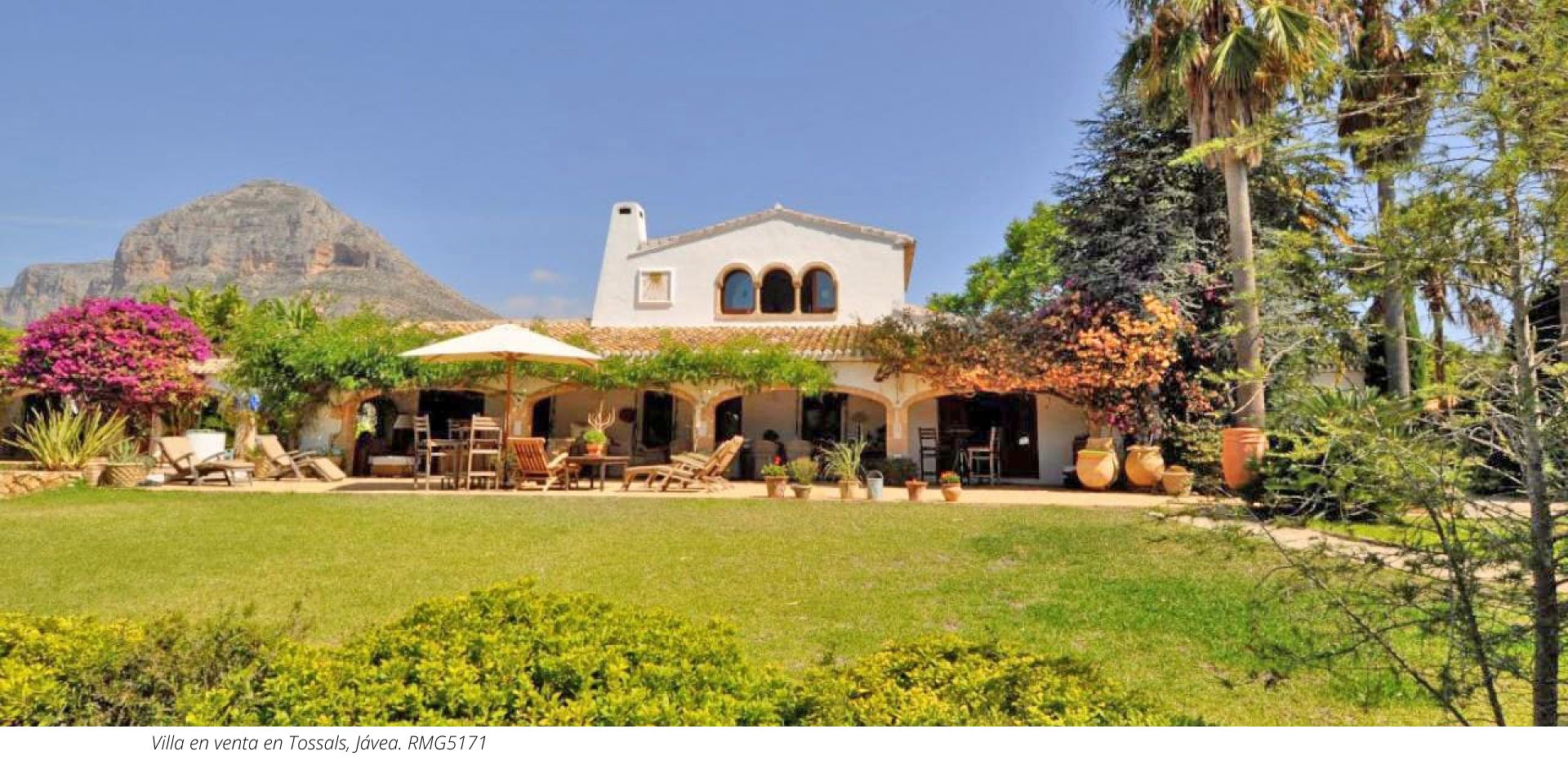
Making an offer with the intention to buy is best received by the seller if it is well documented. Proof of sufficient funds and a specific form of payment help the seller make the decision.
Your buying agent will advise you on recent comparable transactions in the area and outline the strengths and weaknesses of the intended offer.
Making offers on different houses at the same time is not advisable. A buyer who follows this tactic will lose credibility.
El compromiso de compra de una vivienda puede perfeccionarse por el mero consentimiento entre las partes. Sin embargo, para probar su efecto es conveniente realizarlo mediante un contrato escrito y firmado en el que se describa el objeto, su precio y la forma de pago.
The contract can be preparatory to the actual transfer of the property or you can go directly to the Notary to sign the Deed of Sale, which will have access to the Land Registry and will be fully effective.
If the contract is preparatory, it can take several forms:
- Binding or non-binding letter of intent to purchase.
- Private reservation contract, with or without delivery of money.
- Purchase option contract.
- Private contract of sale with delivery of money, which, in turn, may take the following forms:
- Private contract of sale with confirmatory deposits
- Private contract of sale with deposit
In both cases, the parties are allowed to withdraw from their contractual obligations at a later time than the signing of the contract, producing, due to non-fulfilment, effects, agreed or dictated by the Law.
If the contract of sale is firm, i.e. one party is selling and the other is buying, regardless of whether or not the full price has been paid, this contract can be made:
- As a firm private purchase contract, with delivery of an amount on account of the final price, which may be determined or depend on the agreed conditions. This contract may have contingencies until the deed is signed before a notary.
- As a public deed before a Notary Public and access to the Property Registry, which is effective against third parties and offers all the guarantees that a private contract does not offer.
All contracts may have – and in fact do have – particular clauses related to the specificity of the case. There may be other rights in favour of third parties, such as easements; resolutory conditions may be agreed, suspensive conditions, which require certain things to happen before the sale is perfected. These conditions sometimes depend on the parties and sometimes not. The course of events will condition the conclusion of the contract, but in any case it will have effects for the parties.
a. Deposit or earnest money deposit: The parties undertake to sell and buy, but may withdraw from the transaction by means of a penalty. If the buyer withdraws from the contract, he will lose the amount paid, and if it is the seller who defaults, he will have to return double the amount received. There may be other agreements. In any case, this penalty must be explicitly stated in the contract.
b. Private purchase contract: Document signed by buyer and seller in which the parties are specified, the description of the property, price and form of payment, the particular conditions of the contract, distribution of expenses and other agreed conditions. The amount paid is on account of the total price. The buyer does not become the owner until all the conditions of the contract have been fulfilled. A buyer can be the owner without having possession of the property. The act of formally handing over the keys – which may take place at the time of signing the title deed or at a later time – determines this important aspect that consolidates the transfer of full ownership of the property.
If a private purchase contract is signed, is it necessary to pay the full price or is any payment deferred to the moment of the public deed?
When signing a private purchase contract, being a preparatory contract for the Notary Deed, normally, the possession of the property is not being handed over and, therefore, it is not advisable to pay the full price.
With the signing of the contract, typically, a sum of money is handed over which is proportional to the purchase price and the time it is intended to defer the signing of the Title Deed before the Notary and the payment of the remaining amount.
Normally, when the private purchase contract is signed, all the terms have been agreed and the parties will conclude the transfer within a reasonable period of time. Time, which may be necessary for both parties (this can be a highlight). In the case of the buyer, he may need some time to divest his funds, or he may need financing and therefore time to be granted a loan. In the seller’s case, the seller may need time to vacate the property, to move out or, if necessary, to carry out certain repairs that have been agreed with the buyer.

The ideal form of payment is known as “in cash”. In other words, the price is paid in full and the transfer of full ownership of the property takes place in one and the same act.
However, it is common for the payment to be made in two or more payments, which can be made before and after the signing of the Deed of Sale.
In cases where the sale is not “in cash”, a private contract must be signed. a private purchase contract will necessarily be signed which, as we have already said, will be preparatory to the Deed of Sale. With the signing of this contract, the conditions of the whole operation will be agreed and a schedule of payments will be established, which may be two or more. The first payment will be made with the signing of this private contract and will have the condition and effects that the parties have agreed upon (see “How can I formalise my intention to buy a property? If you have any questions, please write to us (link to the form)).
We can distinguish some special cases:
a) If the buyer wishes to apply for a mortgage loan, the amount of the loan received will be paid at the same time as the signing of the Title Deed. The remainder of the outstanding purchase price will then also be paid.
b) If there is a prior burden on the property, two paths can be taken:
- That the buyer, with the prior authorisation of the Bank, is subrogated in the amount of the outstanding debt -becoming the mortgagor-. The amount that the seller will receive, in this case, would be: the price of the sale, less the outstanding debt with the Bank on the day of signing, less the amounts received on account in the private contract, less other expenses to be deducted.
- That the seller redeems the outstanding amount at maturity.
- This payment can be made in the act immediately prior to the Notary’s authorisation of the actual sale and purchase. For practical purposes:
- the buyer may deliver to the Bank the cheque for the amount that will cancel this debt; in which case, the remaining part of the price will be delivered to the seller.
- Or the seller can provide at the same time a bank cheque to cancel the amount of the debt – the Bank providing at the same time the letter of payment for its registration cancellation – in which case, the seller would receive the full amount of the sale, minus, if applicable, the amounts that had been paid at the time of signing the private contract.
- The repayment of the outstanding amount to the creditor bank can also be made at any time between the signing of the private contract and the Deed of Sale itself. This scenario is less frequent and has the risk that the contract will not be completed, despite the fact that a confirmatory deposit has been made, with the consequent possible effect on the seller. This option depends exclusively on the circumstances and the seller’s decision.
c) Involving several buyers or several sellers who must pay or receive the money in different places and at different times. Certainly this situation can be very complicated, but it is an exciting challenge that Rimontgó has overcome in operations of great economic relevance. The final success of the operation, naturally, brings great satisfaction to both sellers and buyers, as they see a problem that was very difficult to solve resolved; but it is especially gratifying for the Rimontgó team who have been able to provide imaginative, practical and safe solutions for all parties.
It is not a very common practice if circumstances concur in the property, its owners or the purchasers. However, when everything is in order (this circumstance is the effect of Rimontgó having done an impeccable preliminary work), then it is perfectly possible to go to the Notary’s office, to carry out the transfer of full ownership of the property in a single act, even if there are third party rights, mortgage charges or other legal or fiscal contingencies.
The signing before a Notary of all the legal acts associated with a purchase-sale with the mediation of Rimontgó – however complicated the operation may be – confers full legal security to the buyer, being able to make the payment of the totality of the price, in a single act and with full guarantees.

An “off-plan purchase” is the colloquial name for the payment made on account of the total purchase price of a property that is in the process of construction and will be completed and delivered in the future.
This partial payment may start with an amount of 10% of the purchase price and continue with periodic partial payments of up to 80% or more towards the final price of the property, the difference being paid on signing the deed of purchase and the subsequent handing over of the keys and documentation of the property.
The actual construction process can take between one and two years. The administrative procedures before and after construction can make this process desperately long, often with no other justification than the workload and the shortage of staff in the Public Administration.
For the amounts received on account, the developer will provide a bank guarantee that guarantees the delivery of the property on time or the return of the amounts paid.
When signing the deed of sale, the developer will hand over all the technical documentation of the property and an insurance policy that guarantees structural defects in the construction for ten years and other additional guarantees for the installations and equipment.
If the property to be purchased has a mortgage loan with an outstanding balance, the buyer may consider subrogating the outstanding amount, or even extending it, with the consent of the lending bank.
By taking over the mortgage, the buyer assumes the status of debtor vis-à-vis the lending bank. This can mean, for the buyer, greater flexibility in obtaining a loan to finance part of the purchase amount, as well as saving on the costs of opening the mortgage loan. On the other hand, the seller saves the expenses derived from cancelling the existing mortgage.
Formalities after purchase
The public deed of sale executed before a Notary Public is the preliminary act necessary to register the title of purchase in the Land Registry. The function of this registration is to exercise the acquired rights against any third party.
Although registration is not compulsory, it is nevertheless highly recommended because it provides maximum legal guarantees.
Therefore, the signing of the sale and purchase by means of a private contract, being perfectly legal and taking effect between the parties: on the one hand, it does not take effect against third parties, and on the other hand, it does not have access to the Land Registry, being mandatory the Deed before a Notary.
In the event that the purchase is partially financed by means of a Mortgage Loan, the lending bank will require that the Deed of the loan has access to the Land Registry in order to be effective against third parties. But this registration requires the prior registration of the purchase deed, by virtue of which the purchaser has the power to mortgage the purchased property to serve as security in the event of non-payment of the debt. Therefore, once again, the Public Deed of Purchase before a Notary Public is essential.
Registration can be carried out by any authorised person. Normally, for reasons of speed and in the event that rectifications need to be made, registration is usually carried out by the Gestoría, which normally works with the Notary’s office. In the case of a loan with a mortgage guarantee, it will be the Bank’s agent who will ensure that the title deed and the loan deed are registered successively in the Land Registry.
At the moment of signing, the notary will inform the corresponding Land Registry via telematic means that the legal act has been concluded. The notary’s office will then provide an authorised copy for registration.
Of course, there remains the small detail of the mandatory payment of the corresponding taxes. After registration and recording, the authorised copy of the deed is returned to the owner with the registration data and proof of payment of all invoices associated with the transaction.
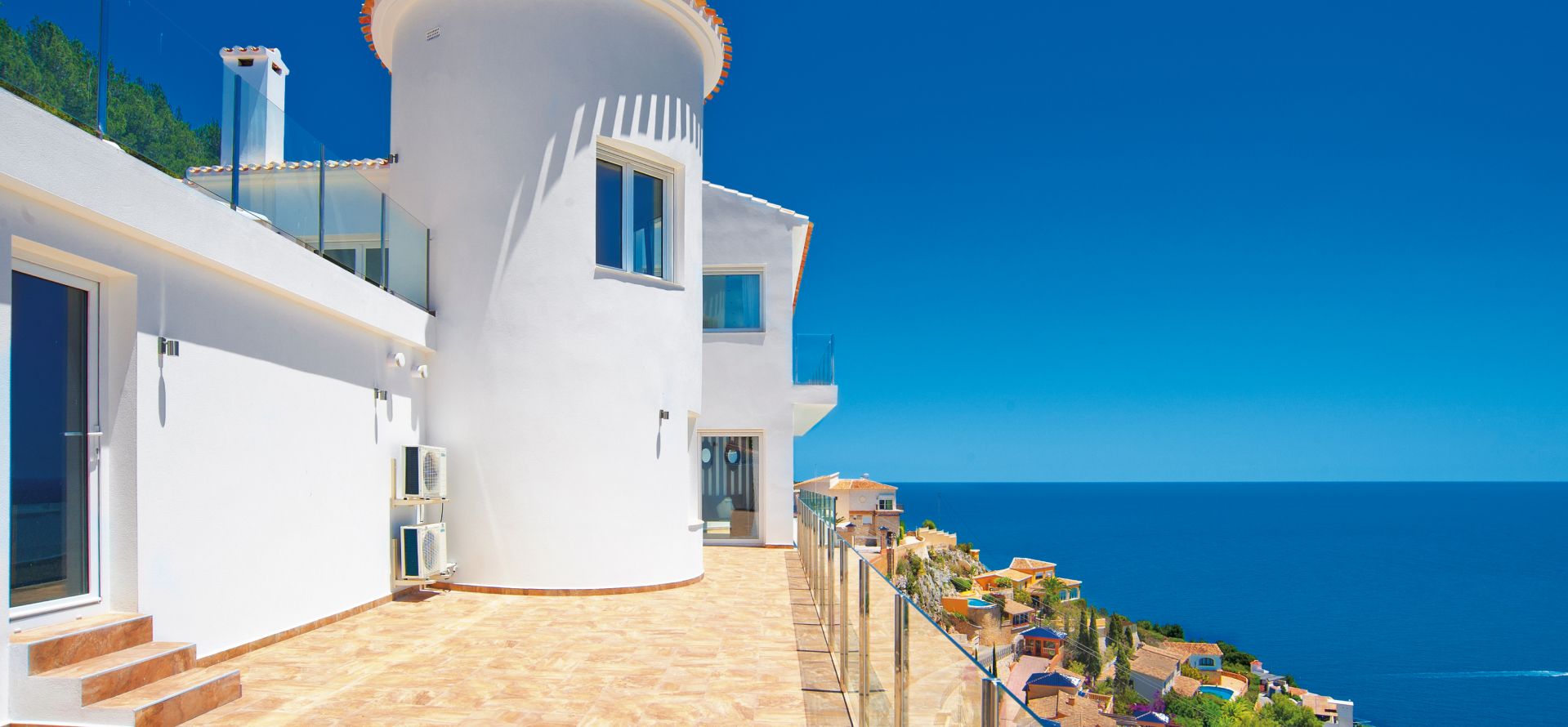
Other relevant issues
Buying your first home is an important decision. In many cases, paying a mortgage, taxes and other expenses associated with the purchase may require a monthly outlay equal to or even greater than the value of a monthly rent. But more importantly, you are increasing your equity with each payment.
Often, the biggest obstacle for a first-time buyer is the availability of cash to meet the down payment and expenses involved in the transaction.
The best way to start the process is to go to a trusted bank to be informed of the real possibilities of obtaining financing according to your personal situation, and the maximum amount that would be granted taking into account your repayment capacity (Rimontgó can help you determine the maximum price/loan level that you can afford, as long as you do not mind sharing information about your income and level of indebtedness). This maximum loan amount, together with the cash you have available, will determine the price range in which you should search. You can start your search by looking at house prices in the area where you would like to buy, remembering that location can be as important as the house itself.
Bear in mind also that depending on your situation, there are a number of grants available to help you buy a home. In this respect you can find information in the various public entities that offer subsidies for the purchase of housing (mainly the Ministry of Housing and Autonomous Governments). In Rimontgó and in your trusted bank you can also obtain details in this respect.
As a first time buyer, the assistance of a real estate professional can be decisive, you should delegate to them to be your representative in the transaction to defend your interests. Your real estate advisor in Rimontgó can help you evaluate the advantages and disadvantages of buying a certain type of property (semi-detached, townhouse, flat, etc.) and which of the various types of property best suits your needs. Is it better to buy a second hand house or a newly built house, and what type of information or guarantees should you obtain in each situation? When making a counteroffer, how much below the asking price can you offer, and how does the price compare with other similar properties on the market? Are you negotiating conditions and other costs (e.g. home warranty) beyond the price? What should you do if renovations are necessary? Are there any factors related to the house or building that may be an obstacle to selling your home? What are the costs involved in the sale and purchase? In what is usually an emotional decision, professional real estate advice to help you buy wisely is highly advisable.
When shopping for a mortgage, consider the total costs, not just the applicable interest rate. You may be offered a low interest rate but a high arrangement fee. Make sure you understand any hidden costs or prepayment penalties that may cause problems. Study the different mortgage products, and see which one best suits your financing needs. A good Agent can give you good financial advice. Rimontgó offers you the service of searching for financing free of charge, most of the time obtaining better conditions than those you could obtain at a private level.
Once you have chosen an area and visited several properties, you may consider making a counter-offer for the property that has convinced you, but in which the price exceeds your expectations. In this case, it is advisable to seek the negotiating help of your Rimontgó real estate advisor and channel the counter-offer through the Real Estate Agency. If finally an agreement is reached with the seller, normally a sum of money will be paid on account of the price and a deposit contract will be formalised, setting a deadline to formalise the public deed of sale. (Sometimes this deadline is set according to when the seller can buy another house and move) During this period you should contact the chosen bank, so that they can send a valuer to value the property. This value is useful in order to determine the exact maximum loan amount.
However, there are cases in which the percentage of financing obtained can be improved by providing guarantees such as personal or real guarantees, cases of social housing in which there is a maximum price allowed and a maximum loan amount, etc. In all these cases Rimontgó can advise you in order to find the best solution for your needs.

A move can be a sensitive experience for a family, because of the changes it can involve. Moving affects everyone in the family, and it is often easy to overlook the needs of our young children.
Some tips can help make the moving process easier for you:
- Tell your children why you are moving.
- Have a family discussion exchanging views on what you will miss most and what you are most looking forward to once you move.
- Ask your children what they would like to know about the new area/city, don’t make assumptions.
- Have a farewell party for friends; find a way to keep in touch with them.
- Use a calendar to plan what will happen and in what order during the moving process.
- Read children’s stories about moving house.
- Take a camera with you during your housing search. Photograph other children at play, in their activities and inside the school. Show them to your children back home.
- Allow children to participate in the packing process. If possible, have all family members present on moving day to observe the loading of the truck. Try to put the children’s belongings last, allowing them to be unloaded first.
- Celebrate your arrival in your new home.
- Walk around the neighbourhood with your children to ease their worries about getting lost. Help your children plan their first day of school – what to wear, what to take with them and how to get there.
- Spend extra time with your children throughout the moving process, so you can be aware of their concerns and take steps to alleviate them.
Be careful when planning a move, ask for quotes from several companies that specialise in removals, ask your acquaintances and trusted contacts for references, find out what services are included and consider taking out removal insurance.
Don’t leave your planning to the last minute and consider whether you should move some delicate objects or objects of particular emotional value yourself.
If you intend to keep your belongings in a furniture storage service, check the guarantees they offer or possible insurance in case of theft or accident (fire…) and make sure they are a company with the corresponding licences.
In the event of an international removal, demand a reputable company with quality certificates and sufficient infrastructure such as transport fleet and adequate packaging. Again, try to obtain references and observe the above-mentioned tips. Be wary of quotes that seem excessively cheap and if necessary, visit the company to check these aspects first hand.
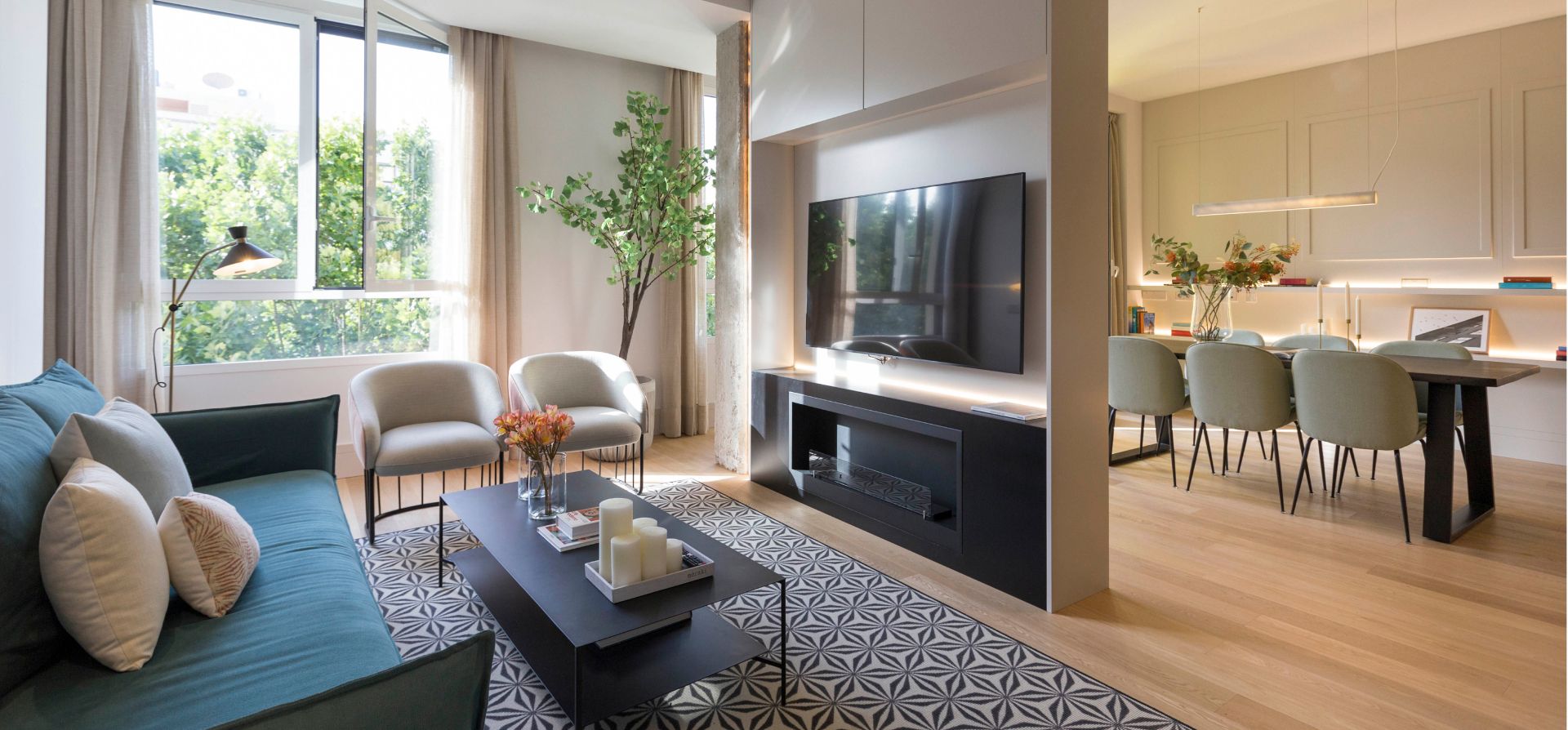
Home ownership is a goal that is usually on everyone’s mind, but unfortunately not within everyone’s reach. More Spaniards now own their own home than ever before. However, buying a house is a considerable financial investment and does not guarantee you a saving of money in the short or long term, rather it is a decision that will mean a significant outlay of money and a reduction in your liquidity for many years. On the other hand, most people think of renting as “throwing money away”. Why give your money to your landlord when you can invest in your own home? The main considerations are your lifestyle, your ability to obtain a mortgage and your financial situation.
As part of a lifestyle, rental flats fit into people’s time constraints. For first-time independents, it can be a good option. In large urban areas, flats give you the opportunity to live in fashionable areas, which may only be affordable if you rent. Renting also allows more flexibility for people who, for reasons of their profession or work, have to change their residence on a regular basis.
In addition, not everyone can get a mortgage. Despite the many types of mortgages and subsidy programmes available to those with the greatest difficulties in accessing housing, some people simply have a bad credit history or too many monthly payments to make to be accepted for a mortgage or to obtain a loan sufficient to enable them to buy the property they want.
Other considerations are how long do they want to invest in a home and how much are they willing to let it affect their lifestyle? Housing is expensive. In most cases, living in the same area where you are renting, in a comparable housing environment (same size, qualities, etc.) will mean a higher monthly outlay for many years.
A property does not guarantee profitability or profit when it is sold, although it is true that it is currently one of the values that offers the highest profitability in the shortest period of time. However, like all investments, a house carries a level of risk. There are a number of costs associated with the sale and mortgage, which are paid up front and will take a long time to generate sufficient return to compensate for them. If you need to sell in a short time, you will get a lower return. If you move frequently or plan to do so in the near future, you should seriously consider the costs of owning a home for the short term.
You should also consider the future of the housing market in general, how it behaves over time. If the economy is doing well, homes tend to increase in value, but in a poor economy, home values tend to stagnate. When you rent, you have more flexibility to react to major changes in the economy.
Despite the risks and lifestyle changes, home ownership is a definite medium- and long-term reward for most people.
If you find the property you are interested in, but the price seems excessive, think about what you are willing to pay for it, and make the most reasonable counteroffer possible. As a buyer, you should not make more than one counteroffer, otherwise you will lose credibility. Make sure you understand all the conditions inherent to the sale and purchase operation. Ask Rimontgó anything you do not understand and make sure you know all the complementary costs of the purchase before making your counteroffer: fees, taxes, etc.

- Name or company name of the promoter, details of registration in the Commercial Register.
- Specific information on the property: floor plans, description, useful surface area, services and supplies, common areas, damage and hidden defects insurance.
- Property Registry data, to verify:
- That the plot of land on which the building is to be constructed is registered in the name of the developer with whom we contracted.
- That the building has been authorised by the Town Hall, by means of the corresponding licence.
- Community Statutes.
- Selling price and method of payment.
- Details of the mortgage subrogation, if any.
- Form in which it is intended to document the contract, with its general and particular conditions, expressly stating:
- That the preliminary expenses that by law correspond to the seller, will not be borne by the buyer.
- The purchaser’s right to demand the execution of a notarial deed and the choice of notary.
All this information is, in any case, collected and duly validated by your personal advisor at Rimontgó, who, as an expert in the matter, verifies that everything is correct and carries out the corresponding follow-up of the work, making the work as easy as possible for the buyer.
- Property Certificate.
- Last receipt of property tax.
- Last bill for electricity, water, gas.
- Certificate of being up to date with the community fees, (if this is not obtained and there are debts, the community can demand the amount up to a certain limit from the buyer, without prejudice to their right to claim it from the seller).
- Last receipt of Community Charges without any overcharges.
- Copy of the Statutes of the Community, registered in the Property Register.
- In the event that the property is mortgaged and there is capital outstanding, certificate of the state of the debts issued by the creditor entity..
With regards to working with a second hand real estate agency, specifically in our case, Rimontgó does not accept any property for sale, nor does it offer it, without having first ensured that it complies with all the security norms and all the legal, economic, legal and market requirements.

Your Rimontgó real estate advisor is in all cases responsible for compiling, studying and validating all the documentation in order to guarantee that the transaction will be completed to the satisfaction of both parties. Your Rimontgó advisor must act as the client’s representative until the sale is completed.
How can I formalise my commitment to buy a property? We can resort to a private purchase contract directly, or, what is more common, formalise a penitential earnest money contract:
- Deposit or deposit: This is the reservation of the right to buy the property, by means of the payment of an amount on account of the price. It does not oblige the buyer to buy, but it does entail a penalty if either party backs out. In this case, if the buyer withdraws from the contract, he will lose the amount paid, and if it is the seller who defaults, he will have to return double the amount paid. It must appear in the contract that they are penitential deposits.
- Private purchase contract: Document signed by buyer and seller in which the parties, description of the property, price and form of payment, distribution of expenses and other agreed conditions are specified. The amount paid is on account of the total price. The buyer does not become the definitive owner, which will occur when the keys are handed over at the time of signing the public deed.
With regard to the form of payment, three different scenarios can be distinguished:
- If we are going to apply for a mortgage loan to buy a property, the full price is normally paid at the time of the public deed, unless a deposit has been paid previously, in which case this amount is deducted from the amount to be paid.
- If there is a prior charge on the property, the seller will only receive the difference between the price and the outstanding capital, as the amount of the outstanding debt will be retained to pay the bank and thus cancel the prior mortgage.
- If it is done in one payment.
This should only be done if the property is completely free of encumbrances in the Register, as if there are any encumbrances (mortgage, seizure, etc.), the amount must be deducted from the price. It is only advisable if the deed is signed directly in front of the notary, as in this case the buyer enjoys immediate protection by means of the telematic sending by the notary of the communication of the sale and purchase. By law it is only possible to hand over € 2,500 in cash.
When a partial payment is made on account of the price, “off-plan purchase”, since the building is not yet constructed (payment that normally represents 20-30% of the price and which is made through periodic payments made during the time -approximately 2 years- that the construction of the house lasts), the promoter is obliged by law to constitute an insurance that guarantees the return of the amounts paid plus the legal interest in the case of non-compliance.
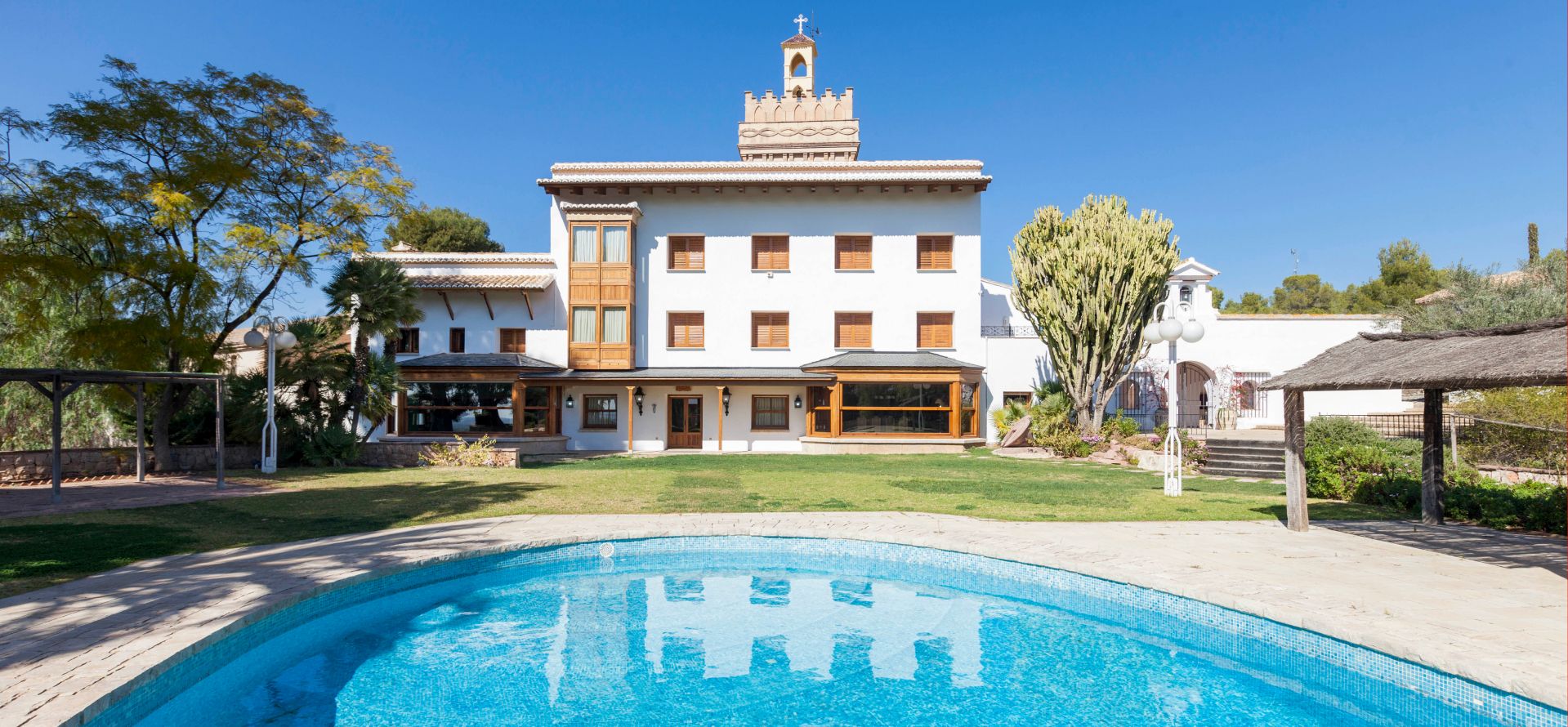
If a private purchase contract is signed, the price is normally deferred and the remaining part of the price is paid at the time of the public deed. In this case, the seller can guarantee the outstanding price by means of a resolutive condition, so that if the buyer does not pay, the property becomes the property of the seller again.
Especially if the property to be sold is mortgaged, the buyer can be subrogated to the mortgage and acquire the status of debtor vis-à-vis the lending bank. The buyer saves the costs of taking out a mortgage loan and the seller saves the costs of paying off the existing mortgage. The seller will receive as price the price resulting from subtracting the amount of the outstanding loan and other unpaid bills, if any. It is necessary that the bank accepts the buyer as a borrower.
The public deed of sale is the act that makes the purchaser the owner and serves as the title inscribable in the Land Registry. The function of this inscription is to leave a written record of the ownership of the property and of any encumbrances on it. It is advisable because it produces maximum legal guarantees, and it is obligatory in the case of a mortgage loan.
Registration is carried out by the manager of the notary’s office or the manager appointed by the bank, in the case of a mortgage loan: on the day of signing, the notary already informs the Registry of the legal act that the purchase is going to be formalised in a public deed, but then the authorised copy of the deed with the payment of the corresponding taxes must be taken to the Registry in order to proceed with its definitive registration. After registration, the registered deed is returned to the owner with all the invoices paid by the latter.

The acquisition of real estate in Spain is subject to the main indirect taxes: Value Added Tax (hereinafter VAT) and Transfer Tax and Stamp Duty (hereinafter TPO and AJD, respectively).
In order to determine the tax to be paid in each case, the aspects to be taken into account are as follows:
- The status of the transferor and the acquirer (natural or legal persons having the status of entrepreneurs or professionals and being VAT taxable persons or, on the contrary, natural persons acting as private individuals).
- Type of property to be transferred (dwellings, premises, offices, urban land, rural land, building land, non-building land, etc.) and its use (habitual residence, rental, professional activity, etc.) ….).
- And whether the transfer of the property is the first or second and subsequent transfer.
This means whether the seller is a developer, or whether the seller is a private individual (a natural person who is not an entrepreneur), whether the purchaser is a natural person or a legal entity, whether the purchaser is a natural person acting as a private individual or in his capacity as an entrepreneur. On the other hand, the type of property, whether the property is a dwelling, premises, building land or non-building land… And finally, whether it is a first transfer or a second or subsequent transfer. Generally, we will be sold by a promoter when we are buying a new property and we will be sold by a private individual when we are buying a second-hand property.
Taxation if a property is acquired from a developer by a private individual.
In transfers between a developer and a private individual, we must first consider whether it is a first transfer or a second or subsequent transfer (or unbuildable land).
If it is the first transfer, this will be subject to VAT (4%, 10% or 21%, depending on the type of property), so the transferring developer will have to pass this tax on to the acquiring individual.
Concept of first delivery of dwellings (new dwellings).
The concept of first delivery of dwellings (new dwellings) means “dwellings that are acquired from the developer when the construction or refurbishment is completed, unless the dwellings have been in continuous use for a period equal to or greater than two years by persons other than the purchasers”.
“That is to say, if the developer, once the works have been completed, rents the dwellings and after two years he puts them up for sale, if the dwellings are acquired by the tenants themselves, the delivery of the dwellings is a “first delivery”, but not if they are acquired by different persons”.
“The construction work on a dwelling shall be deemed to be completed when a certificate of completion is issued by the architect and quantity surveyor who supervised the work.
In the case of a second or subsequent transfer (or in the case of non-building land) the transaction will be exempt from VAT and will be subject to TPO, so the transferor will not include VAT in his invoice, and the acquirer will have to pay the TPO at the rate of 4%, 8% or 10%.
Therefore, if we acquire a new property (constituting for the purposes of the law a first supply) we will have to pay VAT to the seller.
The current VAT rates are as follows:
- A reduced rate of 4% for the supply of social housing.
- Reduced rate of 10% for the supply of buildings, dwellings, garages and annexes.
- General rate of 21% applicable to all transactions on goods for which a lower rate has not been set, e.g. commercial premises. E.g. Commercial premises
In addition to the VAT, which is paid directly to the developer who sells us the property, the transaction will be subject to the transfer tax in its modality “Actos Jurídicos Documentados” (AJD).
For the Valencian Community, the following tax rates are established:
- 1.5% in general.
- 0.1% in the case of the first copies of public deeds documenting the purchase of a principal residence.
- 2% for cases where the VAT exemption has been waived (see next section).
Taxation if a property is acquired from a developer by a natural or legal person acting as an entrepreneur.
Taxation is as described in the previous section, in the case of a first transfer, the transaction will be subject to VAT and AJD.
In the case of a second or subsequent transfer (or in the case of non-building land) the transaction will be exempt from VAT and will be subject to TPO, although the VAT law recognises the possible waiver of the exemptions under certain requirements, mainly that the acquirer acts, in any case, as a businessman or professional, a VAT taxable person.
Therefore, in the acquisition of a new home (constituting for the purposes of the law the first supply) we will have to pay VAT to the seller and pay AJD tax, whether the acquirer is a private individual or a businessman, and in the case of an exempt transfer (second or subsequent transfer, or in the case of land that cannot be built on), the operation will be exempt from VAT and the transaction will be subject to AJD, the transaction will be exempt from VAT and will be subject to TPO, with the acquirer being a businessman, having the possibility of waiving the exemption and paying VAT and AJD (2%), for which he must be a VAT taxpayer, as well as fulfilling the other requirements established in the VAT Law.
Taxation if we acquire the property from a private individual.
In this case, the tax that affects us is the Transfer Tax (Impuesto de Transmisiones Patrimoniales en su modalidad de Transmisiones Patrimoniales Onerosas (TPO).
This tax is incompatible with VAT, so in no case will we have to pay both taxes.
The transfer of real estate between private individuals and acquisitions from developers that are declared exempt from VAT1 and in which the exemption is not waived, as mentioned in the previous section, will be subject to this tax.
The tax base is calculated on the value of the property transferred, which, in the case of real estate, is the reference value provided for in the regulations governing the land registry at the date on which the tax becomes chargeable.
However, if the value of the property declared by the interested parties, the price or agreed consideration, or both, are higher than the reference value, the higher of these values will be taken as the taxable base.
When there is no reference value or this cannot be certified by the General Directorate of Cadastre, the taxable base, without prejudice to administrative verification, will be the higher of the following: the value declared by the interested parties, the price or agreed consideration or the market value.
The tax rate will be 10%, except for the supply of social housing and other special cases, where 4% or 8% will be applied. Unlike VAT, the person obliged to pay the tax debt is the acquirer.
If, in addition, the transferor is a non-resident without a permanent establishment in Spain, the acquirer will be obliged to withhold and pay 3% of the agreed consideration as a payment on account of the tax payable by the non-resident and pay it to the Inland Revenue.
Taxes and expenses involved in a mortgage loan.
If we have to apply for a mortgage loan from the bank for the purchase of the property, in addition to the notary, registry and management costs that we have mentioned in the section on the purchase and sale, there is the stamp duty tax and others linked to the lending bank:
– Stamp duty (AJD): The following cases are distinguished:
- Housing purchased NOT VPO: In this case the formalisation of the mortgage loan accrues the AJD tax, which is 1.5% of the Mortgage Liability (the amount of which is stated by the bank in the public deed).
- In this case, the mortgage loan deed is exempt from payment of the tax, as is the subsequent cancellation of the registration of the mortgage loan, which is also exempt from payment of the tax.
- Main residence: If the property is to be used as a main residence and this is expressly stated in the deed, the AJD tax is 0.1% of the mortgage liability.
- In cases of waiver of VAT exemption, AJD tax is levied on the first copies of deeds and notarial deeds formalising mortgage loans or credits when the taxable person is the lender, the rate is 2% of the price stated in the deed, not including the amount paid in VAT.
In the case of deeds of loan constitution with mortgage guarantee formalised after 10/11/2018, the taxpayer is the lender, i.e. the bank.
– Valuation of the property: Normally for the approval of the mortgage loan by the bank, the bank will require the valuation of the property to be purchased by an approved valuation company, in order to determine the maximum amount of the mortgage loan and the conditions of the same. Normally the bank will grant a loan amount based on the appraisal value as long as this amount does not exceed the price of the property. The amount will depend on the appraisal value normally, and can be between 180-400€.
– Other expenses: The bank may agree to charge an arrangement fee, which is usually a percentage of the amount of the loan capital. Multi-risk home insurance: By virtue of Law 2/1981, the holder of a mortgage loan is obliged to take out fire (or damage) insurance on the home to be mortgaged. It is an insurance that covers the building, not the contents of the home, which can be insured by extending the insurance. It may be advisable, although it is not obligatory, to take out a loan repayment insurance policy that covers, in the event of the death of the holder, the capital of the loan pending payment.
The current law obliges the bank to pay almost all the costs. This is the distribution established by Spanish regulations from June 2019:
- Expenses paid by the mortgagor: the appraisal, the simple note from the Land Registry and in addition to his copy of the deed.
- Expenses paid by the bank: the entity that grants you the mortgage will have to pay the notary, the registry, the agency and the tax on documented legal acts, as well as the copy of your deed.
During the time that the property is owned by us, we must also be very aware of the taxes that affect this ownership. Below we will look at taxation according to the condition of the owner of the property.
If the owner is an individual resident in Spain.
Taxation by Personal Income Tax (hereinafter IRPF).
The concept of habitual residence is key in the configuration of the taxation of property ownership regulated in the Personal Income Tax Law.
For the purposes of this tax, a principal residence is understood to be any building that constitutes the taxpayer’s residence for a continuous period of at least three years, and it is also required that the taxpayer effectively and permanently inhabits it for a period of no more than twelve months, counted from the date of acquisition or completion of the works.
The use of a permanent residence does not generate any type of income. What is more, in certain cases it may give entitlement to a deduction for its acquisition.
Deduction for the purchase of a primary residence: According to our current legislation, any investment made up to 31 December 2012 for the purchase or renovation of a primary residence allows a deduction in Personal Income Tax (IRPF) both for the capital invested and for the interest paid, in the case of having applied for a mortgage loan.
You can deduct 15% of the amounts paid for the purchase in the same tax year, with a maximum base of €9,015.18, from the full tax liability.
Since 1 January 2013, this deduction has been abolished, but if you have deducted before that date, you can continue to apply this deduction in your income tax return if you meet the established requirements.
If you acquire a new main residence having sold or without having sold the previous one, the deduction cannot be applied to the new residence as this deduction has been abolished since 01/01/2013.
Homes that are not the taxpayer’s main residence, in addition to not being eligible for the deduction in the previous section, the Law establishes that in the case of urban properties that are not used for economic activities, nor produce income from real estate capital, 2 per cent of the cadastral value (1.1 per cent if the cadastral value has been revised with effect from 1 January 1994) will be considered as income. This income is taxed at the general rate.
For properties located abroad or properties without a cadastral value, 50% of the value that the property would have for Wealth Tax purposes (the higher of the acquisition value and the value ascertained by the Administration) will be taken as the value.
What is the treatment of reinvestment in the main residence?
If a capital gain is generated in the transfer of the old main residence, it is exempt from tax when the total amount obtained from the transfer is reinvested in the purchase of a new main residence within a period not exceeding 2 years from the date of transfer.
If only part is reinvested, the part proportional to the amount effectively reinvested is exempt from taxation.
Similarly, capital gains obtained when the old home is sold after the purchase of the new main residence are entitled to reinvestment exemption if the amount obtained from the sale is used to pay the price of the new home within a period of 2 years from the date of purchase of the new home.
The deadline for filing self-assessments of Personal Income Tax, whatever the result (payable or negative), is between the first days of April and 30 June of the financial year following the date of accrual (31 December of each year).
Wealth Tax.
Resident individuals must pay Wealth Tax. The taxable base will be the value of their assets wherever they are located on 31 December.
In the case of real estate, the highest of the following three values must be taken as the value:
- purchase value.
- cadastral value.
- value verified by the Administration.
In the Valencian Community there is a minimum exemption from Wealth Tax of 500,000 euros, with effect from 01/01/2021, with a minimum rate of 0.25% and a maximum rate of 3.50%. In any case, this tax return must be filed if the joint valuation of these assets exceeds 2,000,000 euros, regardless of whether or not the tax payable results in a tax payable.
The deadline for filing Wealth Tax self-assessments, regardless of the result (payable or negative), is between the first days of April and 30 June of the year following the date of accrual (31 December of each year).
Real Estate Taxation.
Property Tax (hereinafter IBI) is a municipal tax levied on the ownership of real estate.
This tax is payable by the owner of the property on 1 January of each year, when the tax is due, regardless of the payment period established by each local council.
Broadly speaking, it is determined by applying a tax rate to the cadastral value of the property, agreed by the respective Town Councils in the corresponding Municipal Ordinances. However, the rates of Real Estate Tax (IBI) will be those set out in Art. 72, ROYAL LEGISLATIVE DECREE 2/2004, of 5 March:
For urban properties the minimum and supplementary tax rate will be 0.4 per cent and the maximum will be 1.10 per cent.
In the case of rural properties, the minimum tax rate will be 0.3 per cent and the maximum will be 0.90 per cent.
The tax rate applicable to properties with special characteristics (which will be supplementary): 0.6 per cent.
The local councils may establish a differentiated rate for each group of these existing in the municipality, which in no case will be less than 0.4 per cent or more than 1.3 per cent.
The respective local councils may increase the minimum and maximum rates by the percentage points indicated for each case, when any of the circumstances established by law apply.
Specifically in Valencia City Council, the applicable rates are as follows:
- On urban real estate: 0.723 %.
- On rural property: 0,437 %.
- On immovable property with special characteristics: 1,30 %.
A surcharge of 30 % of the net tax liability will be applied to those dwellings that are permanently unoccupied, and permanently unoccupied dwellings will be understood to be those declared as such by the Generalitat Valenciana.
If the owner of the property is a natural person not resident in Spain.
Non-resident income tax.
In the event that the owner of the property is a non-resident individual, he/she will have to pay an imputation of income consisting of 2% of the cadastral value of the property (1.1% if the cadastral value is revised after 1 January 1994). The tax rate applicable to such income will be:
EU residents, Iceland, Norway and, from 11-07-2021, Liechtenstein: 19%.
For non-residents in Spain and non-residents in EU member states: 24%.
The deadline for filing and payment of the tax will be the calendar year following the date of accrual (31 December of each year).
Wealth tax.
Non-resident individuals must pay Wealth Tax. The taxable base will be the value of their assets in Spanish territory on 31 December. In the case of real estate, the highest of the following three values must be taken as the value:
- valor de adquisición.
- cadastral value.
- value verified by the Administration.
There is a state minimum exemption of 700,000 euros, applicable to non-residents subject to a real obligation to contribute, and the tax scale is identical to that for residents in Spain. In any case, this tax return must be filed if the joint valuation of these assets exceeds 2,000,000 euros, regardless of whether or not the tax payable is taxable.
In order to complete the wealth taxation corresponding to non-residents, it is necessary to take into account the applicable exemptions, the effects of the taxpayer invoking their right to the application of an agreement to avoid double taxation and the special features contained in the regulations, in particular, the option for residents in other countries of the European Union and the European Economic Area to apply autonomous community regulations if they consider that these are more favourable to them.
The deadline for filing Wealth Tax self-assessments, regardless of the result (payable or negative), is between the first days of April and 30 June of the financial year following the date of accrual (31 December of each year).
Real Estate Taxation.
As has already been mentioned, IBI is a municipal tax levied on the ownership of real estate located in Spanish territory.
The regulation contained in the previous section on the Real Estate Tax of a Resident Individual is equally valid for Non-Residents with property in Spain.

In the event that we lease real estate that we own, the tax consequences would be as follows:
If the lessor of the property is a resident in Spain.
Personal Income Tax (IRPF) taxation.
Income from Real Estate Capital.
This is the income derived from the rental of rural and urban real estate, or from the constitution or transfer of rights in rem over the same.
Deductible expenses must be deducted from the usual or occasional income received by the owner of the property. In principle, the Personal Income Tax Act allows the deduction of all expenses necessary to obtain the income, as well as the amounts used to depreciate the property and the other assets transferred with the property, provided that they correspond to their effective depreciation. There is also a reduction of 60% of the income in the case of rental of the main residence, which does not apply to the rental of premises or other real estate.
Such income is subject to the general and progressive tax scale. The maximum tax rate is 47%.
Income from economic activity (purchase and sale, leasing of real estate).
It is understood that the purchase and sale of real estate is carried out as an economic activity if there is a habitual arrangement of the means of production and human resources or one of both, with the aim of intervening in the production or distribution of goods or services.
It is understood that the rental of real estate is carried out as an economic activity when there is at least one person employed under a full-time employment contract, even if different types of rental are carried out, including the rental of real estate on an hourly or daily basis.
One of the main differences with respect to the consideration of such income as income from real estate capital lies in the fact that, as regards deductions, the incentives for business investment provided for in the Corporate Income Tax Act may be applied to such economic activities, with the exception of the deduction for reinvestment of extraordinary profits.
Such income is subject to the general and progressive tax scale. The maximum tax rate is 47%.
Value Added Taxation.
In principle, leases of land and leases of buildings intended exclusively for residential use are exempt.
The current VAT rate applicable to transactions subject to and not exempt from tax (leases of business premises) is the general rate of 21%.
If the owner of the immovable property is a non-resident in Spain, an individual or a company, and operates without a permanent establishment.
When the non-resident operates in Spain without a permanent establishment, the taxation of the income obtained will be subject to Non-Resident Income Tax (hereinafter IRNR) independently for each taxable transaction carried out, with instantaneous accrual and on the gross income obtained by the non-resident, without any compensation being possible between the incomes.
The taxable base is determined differently depending on the type of income obtained, applying the rules of Personal Income Tax. In general, in the case of income, the tax base coincides with the full income received, without it being possible to deduct any expenses.
If the non-resident has a property in Spanish territory that is rented out, whether as a permanent, seasonal or tourist home, he/she will be taxed at a rate of 24% on the income obtained and will not be able to deduct the expenses incurred in the rental.
However, if the owner of the property resides in another Member State of the European Union, in Iceland or Norway, and Liechtenstein from 11/07/2021, he/she will be able to deduct the expenses incurred in the rental. In addition, he will be taxed at a reduced rate of 19%.
The taxpayer will be obliged to file a tax return for the income received, which will be quarterly in the case of self-assessments with a deposit result, or annually in the case of self-assessments with a zero tax liability or with a refund result.